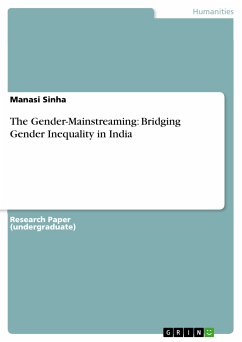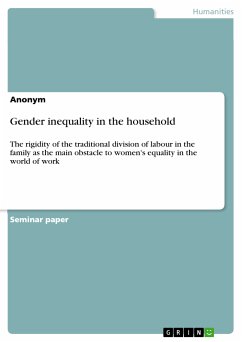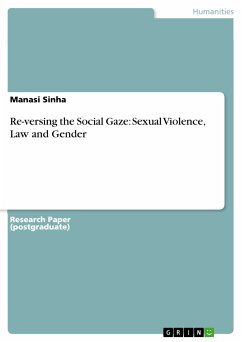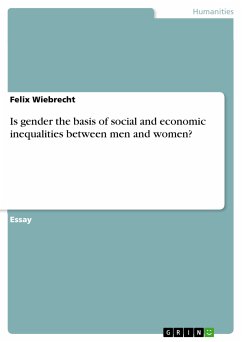Research Paper (undergraduate) from the year 2013 in the subject Sociology - Relationships and Family, Jawaharlal Nehru University (School of International Studies), course: Ph.D, language: English, abstract: The socially constructed gender roles which rooted in India's socio structural set up internalizes further the sense of gender inequality or gender bias and accepted it as 'Norm'. This gender inequality manifests across social, economic and political domain of Indian society in form of preference of boy child over a girl child, falling sex ratio, lack of participation of women in decision making process, lack of control of women over power structure in society. This further results in to domestic violence, sexual harassment, rape, molestation and may more crimes. There have been many gender equality measures taken place at policy level in order to reduce gender discrimination since independence. However, even after 65 years of independence India is still burning with gender discrimination at all levels. The reason behind this gender bias has been the fact that the gender equality measures are mostly oriented towards women and sought to achieve gender equality through positive action or economic opportunity for women only. This paper therefore, attempts to analyze the new gender equality measure namely the gender-mainstreaming strategy as a way to reduce this gender discrimination. The paper dwells into addressing three questions: How gender-mainstreaming strategy could be a better way to eliminate this gender bias? How is it different from other gender equality measures? and What results it could yield in the process of its implementation? Therefore the objective of the paper is to study how the socially constructed gender roles result into gender discrimination in society and how this discrimination can be removed through bringing changes in mindset of people and society at large with the help of gender-mainstreaming strategy.
Dieser Download kann aus rechtlichen Gründen nur mit Rechnungsadresse in A, B, BG, CY, CZ, D, DK, EW, E, FIN, F, GR, HR, H, IRL, I, LT, L, LR, M, NL, PL, P, R, S, SLO, SK ausgeliefert werden.









